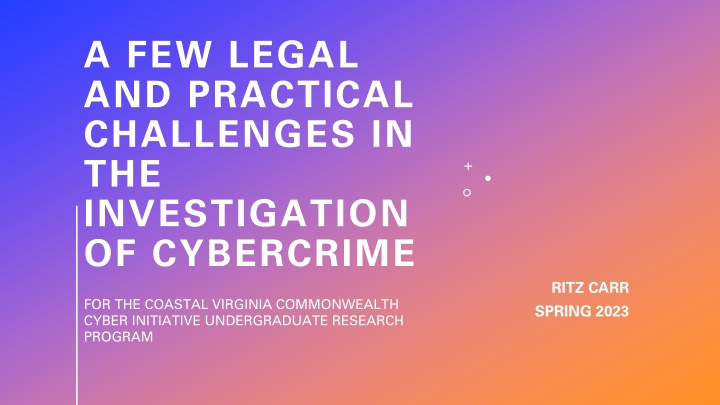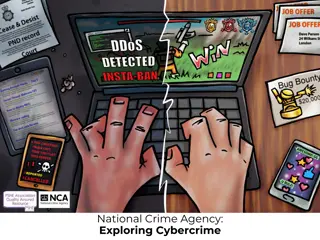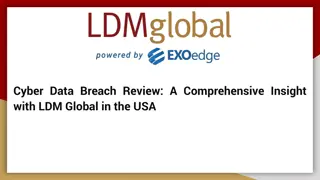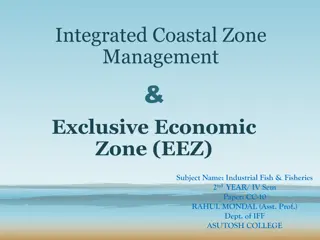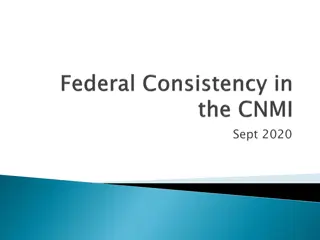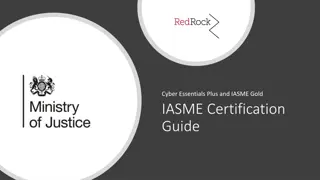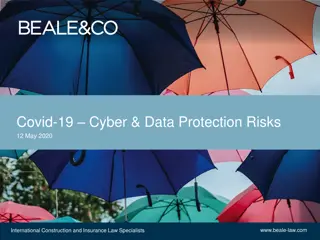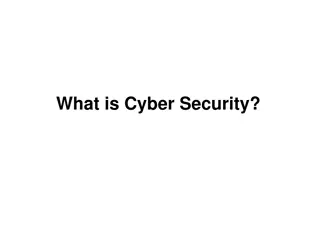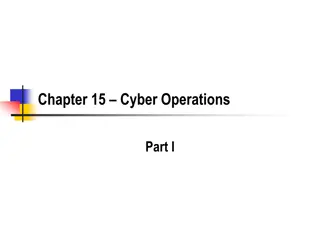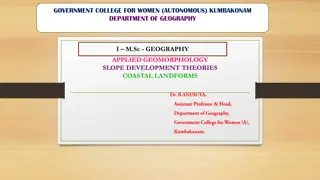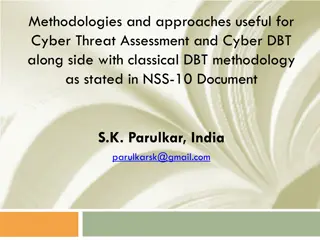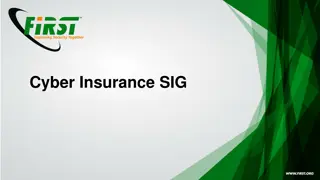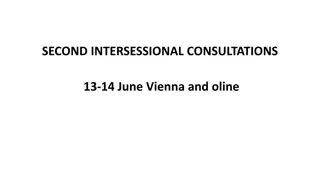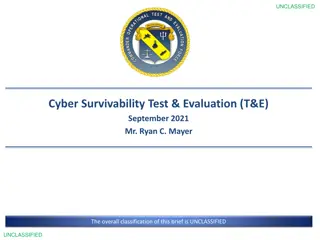Legal and Practical Challenges in Cybercrime Investigation for Coastal Virginia Commonwealth Cyber Initiative
Internet Crime Complaint Center reported increasing cybercrime losses in the United States, showcasing the evolving landscape of cybercrime. This research delves into legal challenges such as defining cybercrime in legislation, jurisdiction issues in cloud computing, and difficulties in corroborating digital evidence, highlighting the complexities faced in investigating and prosecuting cybercrimes.
Download Presentation

Please find below an Image/Link to download the presentation.
The content on the website is provided AS IS for your information and personal use only. It may not be sold, licensed, or shared on other websites without obtaining consent from the author.If you encounter any issues during the download, it is possible that the publisher has removed the file from their server.
You are allowed to download the files provided on this website for personal or commercial use, subject to the condition that they are used lawfully. All files are the property of their respective owners.
The content on the website is provided AS IS for your information and personal use only. It may not be sold, licensed, or shared on other websites without obtaining consent from the author.
E N D
Presentation Transcript
A FEW LEGAL AND PRACTICAL CHALLENGES IN THE INVESTIGATION OF CYBERCRIME RITZ CARR SPRING 2023 FOR THE COASTAL VIRGINIA COMMONWEALTH CYBER INITIATIVE UNDERGRADUATE RESEARCH PROGRAM
ABSTRACT & SUMMARY According to the Internet Crime Complaint Center (IC3), in 2021, the United States lost around $6.9 billion to cybercrime. In 2022, that number grew to over $10.2 billion (IC3, 2022). In one of many efforts to combat cybercrimes, at least 40 states introduced or considered more than 250 bills or resolutions that deal significantly with cybersecurity with 24 states officially enacting a total of 41 bills (National Conference on State Legislatures, 2022). The world of cybercrime evolves each day. Nevertheless, challenges arise when we investigate and prosecute cybercrime, which will be examined in the following collection of essays that highlight some legal challenges in the investigation and prosecution of cybercrime.
CHALLENGE 1: DEFINING CYBERCRIME IN LEGISLATION THE COMPUTER FRAUD AND ABUSE ACT nullum crimen sine lege no behavior can be prosecuted unless formally prohibited by law. Legislation and definitions must be worded clearly to ensure effective prosecution (LII; Nullum Crimen Sine Lege). U.S. has various definitions from agencies such as NIST, DOJ, and FBI regarding cyber and computer crimes, meaning there is no standard definition. The Computer Fraud and Abuse Act (CFAA): Issues regarding the without authorization and exceeds authorization clauses. Real life examples regarding the CFAA: Van Buren v. United States and Aaron Swartz v. United States. 3
CHALLENGE 2: JURISDICTION AND CLOUD COMPUTING IN THE CYBER DOMAIN Defines the following jurisdictions as it relates to the cyber domain: personal and in personam, subject matter, territorial, and concurrent. Applies jurisdiction in the cyber domain to a case example regarding Child Sexual Abuse Images (CSAIs). Defines the Cloud and exploring jurisdictional challenges within cloud computing. Microsoft v. United States (2018) and the Clarifying Lawful Overseas Use of Data (CLOUD) Act application. 4
CHALLENGE 3: DATA HIDING, CORROBORATION, AND THE FEDERAL RULES OF EVIDENCE Explores the difficulties of corroborating digital evidence due to methods of data hiding (steganography). Case example demonstrating data spoofing steganography and difficulties authenticating potentially spoofed or altered data. Explains data corroboration methods (hashing) and steganography methods (renaming flies, bit shifting, etc.). Examines the Federal Rules of Evidence- specifically Articles VII (Hearsay) and IX (Authentication and Identification) and how digital evidence is applied. 5
REFERENCES SLIDE 2: Cybersecurity Legislation 2022. National Conference of State Legislatures, 22 July 2022, https://www.ncsl.org/technology-and-communication/cybersecurity-legislation- 2022. Internet Crime Complaint Center. 2022, Internet Crime Report 2022, https://www.ic3.gov/Media/PDF/AnnualReport/2022_IC3Report.pdf. Accessed 28 Mar. 2023. SLIDE 3: Nullum Crimen Sine Lege. Legal Information Institute, Legal Information Institute, https://www.law.cornell.edu/wex/nullum_crimen_sine_lege.
THANK YOU! RITZ CARR lcarr006@odu.edu
